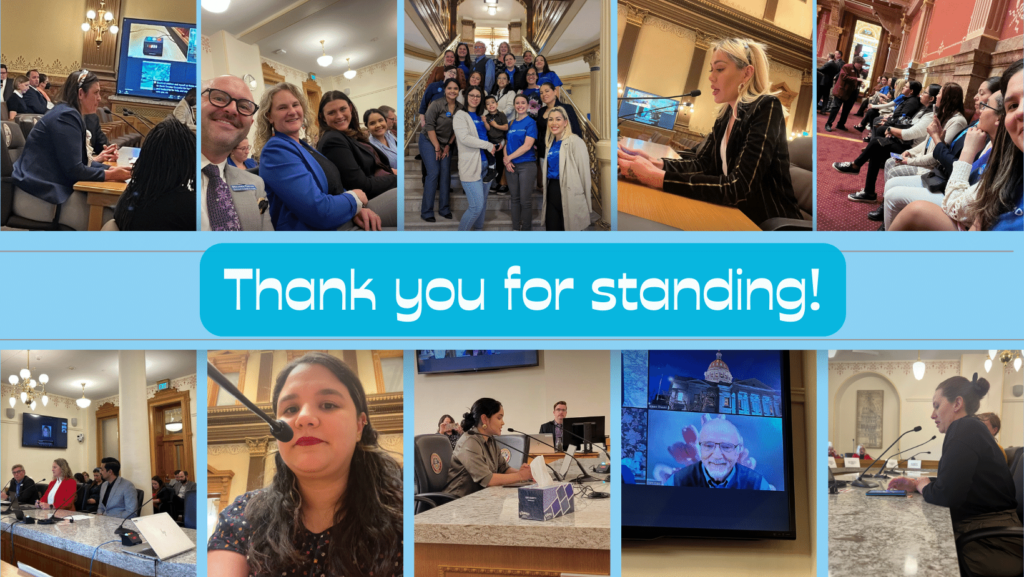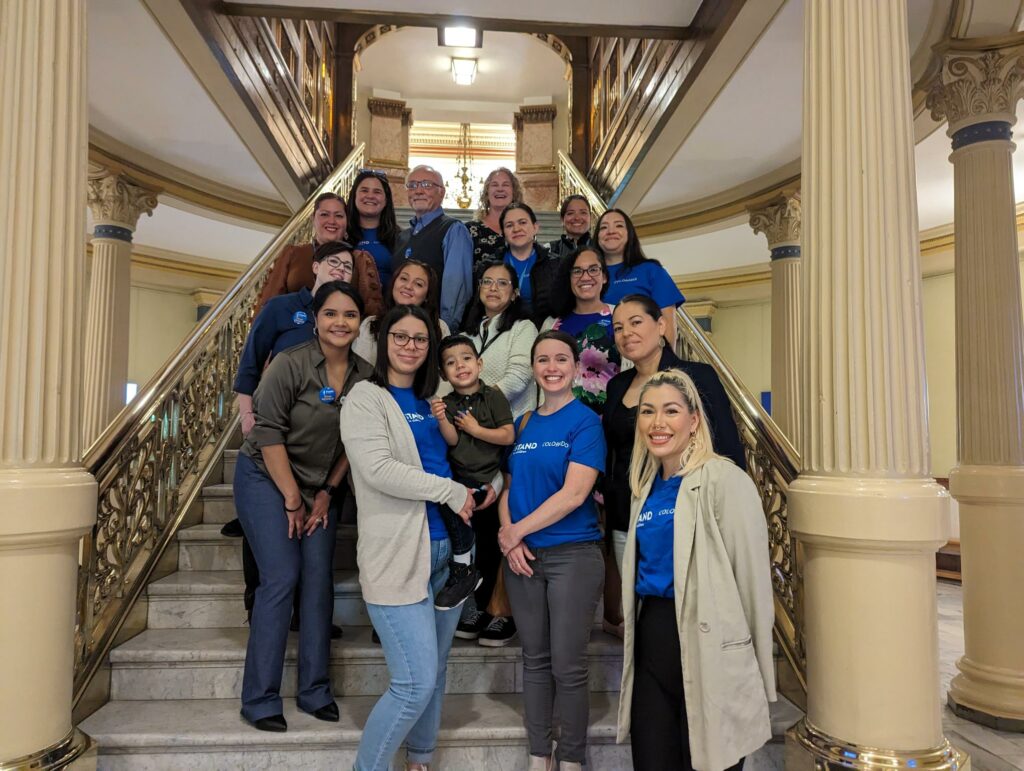
Top Legislative Priorities Now Law
We are thrilled that all of our top priority bills have been signed into law.
In our blog, you will find updates on each of the policy priorities we shared prior to the legislative session focused on advancing educational equity, youth and racial justice in Colorado, and making our schools and communities safer and more supportive.
We are so grateful to the many advocates, partners, and policymakers we worked alongside to bring these policies to fruition. Parents, educators and community leaders participated in listening sessions last summer to identify needs and policy solutions, engaged with lawmakers, testified before committees and shared their experiences with members of the media. Hundreds of advocates sent thousands of emails to policymakers, and 27 shared their lived experiences in testimony before committees nearly 60 times. These impactful policy changes will mean more and better support for Colorado students and educators. They represent steps toward safer and more supportive schools and communities for all Coloradans.



Advocates Join Stand for Day at the Capitol
More than a dozen parents, educators and community leaders joined our team for a day at the Capitol. These advocates were briefed on the latest on key policies moving through the Capitol, listened to Senate floor debate (and were even invited to sit on the Senate floor), got a tour of the Capitol and shared their policy priorities. “I am very fortunate to be here today with Stand. For many years, I have involved myself into the practices and policies of schools, but I’ve never really had the opportunity to dive in and really make a difference at in the policies that are implemented at the state level. This is really what we need in order to be able to make the changes for our kids.” Flor Orozco, parent and Stand Advocacy Fellow.
Advancing Language Justice in Denver Public Schools
We are thrilled to announce that after months of collaboration, learning, and relationship-building, Language Justice was added as a priority as an ENDS statement that talks about equity in Denver Public Schools (DPS). ENDS statements are “description of the long-term goals for the district”. This statement was approved by the DPS Board of Education.
Language Justice is defined as a commitment to ensuring all voices are heard and understood in the process of community engagement. It is more than having access to translators and interpreters, it is a practice to create inclusive and equitable spaces so that community, families, students, and staff can participate in the language of their heart. Read more.
Funding Expanded for Ninth Grade On-Track Program
$1.6 million for the Ninth Grade Success Grant program was included in HB23-1231, Math in Pre-Kindergarten Through Twelfth Grade. This funding will help ensure that more Colorado students finish their 9th-grade year on track and graduate high school prepared for post-secondary success.
Read more about our Center for High School Success.

Lauren Kinney shares her experience from Day at the Capitol
“I’ve been working with Stand as a fellow and it has invited me to take up space in politics that I never really thought I belonged in or never knew the right entry point. Now because of this I feel inspired to do more community organizing to find ways that I can advocate not only for students but also for members of the queer community, and BIPOC voices. I believe that Stand is doing some incredible work.” Lauren Kinney, educator and Stand Advocacy Fellow


Bri Buentello, Stand Government Affairs Director and former Special Education Educator on legislation that will expand translation of individualized education plans
“I’ve seen the disproportionate impact that a language barrier brings, specifically in Latino kids,” she said. “It’s going to drastically increase parental involvement in the IEP process. This is going to lead to us better serving students.”

Early Literacy Educators: We Want to Hear from You!
Stand for Children Colorado will be publishing a report to give an update on the impact of literacy policy in recent years, including the passage of the READ Act in 2012 and subsequent updates related to evidence-based curriculum alignment, teacher and principal training in the science of reading, and increased funding for early literacy grants.
We will be centering educator voice and experience, so if you are an early literacy educator and/or K-3 classroom teacher or administrator, please take a few minutes to complete this survey. Our goal is to hear from as many Colorado educators as possible, so please consider sharing this with your colleagues.
Learn more about our early literacy work.
Thank you for Standing




